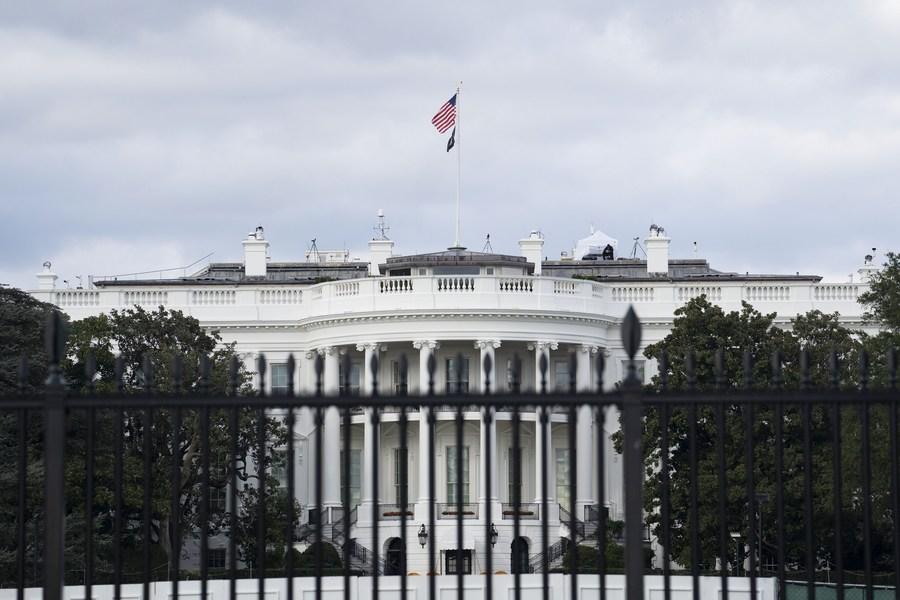
Photo taken on Oct 28, 2021 shows the White House in Washington, DC, the United States. [Photo/Xinhua]
This is an editorial from China Daily.
In yet another blow to the already souring bilateral relations, the Joe Biden administration has tightened controls on the export of materials and components for nuclear power plants to China on the spurious grounds that it would help prevent the proliferation of nuclear weapons.
The Bureau of Industry and Security, an arm of the US Commerce Department, requires exporters to obtain specific licenses to export certain generators, containers and software intended for use in nuclear plants in China. The Nuclear Regulatory Commission, the federal agency responsible for nuclear energy safety, also requires exporters to get specific licenses to export special nuclear material and source material.
The set of restrictions are being rolled out after the Biden administration issued a ban early this month on new US investments in China targeting artificial intelligence, advanced semiconductors and quantum technologies, in addition to the wide range of economic and trade sanctions against China that are already in place.
China is the only nuclear-armed country in the world that commits itself to a no first-use of nuclear weapons policy, and it has always remained a steadfast supporter of the international nonproliferation regime. By suggesting China is not honoring its obligations under the Treaty on the Non-Proliferation of Nuclear Weapons, the United States is trying to extend the geopolitical conflict with China to the nuclear nonproliferation sector at the expense of global nuclear security.
The move only serves to further squeeze the room for any possible improvement in Sino-US relations. One cannot but wonder whether the Biden administration is being sincere when it says it wants to manage relations with China, which it has done on numerous occasions.
China and the US have engaged in extensive nuclear energy cooperation over the past several decades, with four Westinghouse Electric Company units using AP1000 technology already in operation in China. The company is now proceeding with the construction of four additional AP1000 reactors in China. The former Donald Trump administration had already issued restrictions on exports of nuclear reactor technology more advanced than the AP1000 in 2018, citing proliferation concerns. The additional restrictions imposed by Washington will only bring more uncertainty to future China-US nuclear cooperation.
China remains the world's largest market for nuclear power plants, with plans to build dozens of new nuclear reactors by 2035, with the aim that nuclear power accounts for 10 percent of the country's total power production, as compared with 5 percent at present. Further US restrictions will only hurt the interests of US nuclear companies, and compromise the global green agenda to deal with climate change.

 中文
中文



